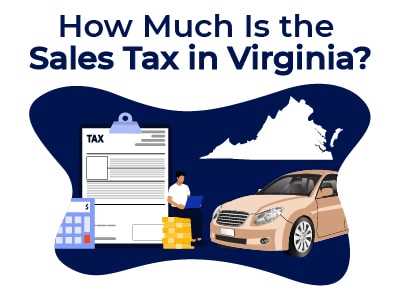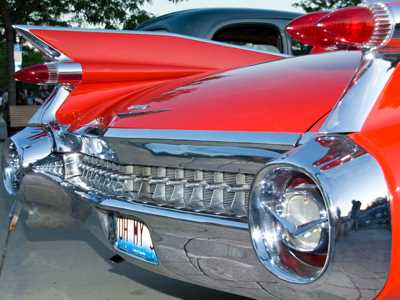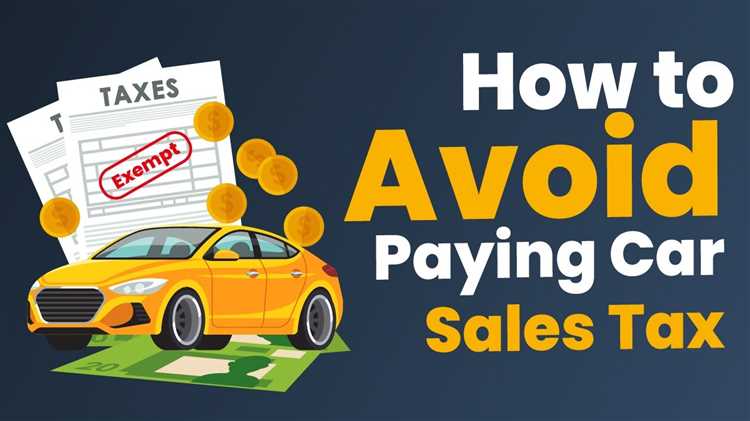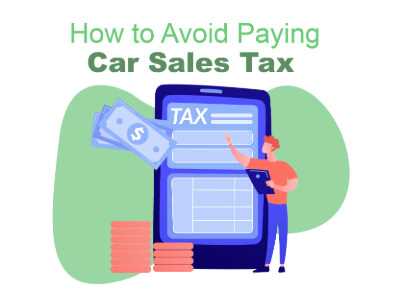
When it comes to car ownership in Virginia, one thing that many people dread is the annual car tax. Paying taxes on your vehicle can be a significant financial burden, especially if you own multiple cars or have a luxury model. Thankfully, there are some strategies you can employ to legally reduce or even avoid paying car tax altogether. In this article, we will explore some tips and tricks that can help you navigate the tricky waters of car taxation in Virginia.
1. Utilize exemptions and deductions: Virginia offers several exemptions and deductions that can significantly reduce your car tax liability. For example, if you use your vehicle for business purposes or if you are a military service member, you may be eligible for certain exemptions. Additionally, you can also deduct the value of any improvements or modifications made to your car that enhance its safety or fuel efficiency.
2. Transfer your vehicle to a family member: In Virginia, transferring ownership of your vehicle to a family member can help you avoid car tax. If you transfer the title to a spouse, child, parent, or grandparent, you can take advantage of the “family transfer” exemption. However, it is essential to note that this exemption does come with certain restrictions and requirements, so be sure to familiarize yourself with the regulations before transferring ownership.
3. Consider leasing or renting a car: If you are not a permanent resident of Virginia or only plan to stay for a short period, you may want to consider leasing or renting a car instead of purchasing one. Since leased and rented vehicles are not subject to car tax in Virginia, this can be a viable option for avoiding the tax. However, be sure to carefully evaluate the costs and benefits before making a decision, as leasing and renting may not always be the most economical choice.
Remember, it is essential to comply with all the laws and regulations related to car taxation in Virginia. While there are legal ways to reduce or avoid car tax, attempting to evade or cheat the system can result in severe penalties and consequences. Always consult with a professional tax advisor or the Virginia Department of Motor Vehicles for accurate and up-to-date information regarding car tax in Virginia.
- Exemptions and Exceptions
- Out-of-State Registration
- Proof of Identity and Residency
- Vehicle Documentation
- Transferring Ownership
- Leasing vs. Buying
- Hybrid and Electric Vehicles
- Car Tax Relief and Payment Options
- Q&A,
- What is car tax in Virginia?
- How is the assessed value of a vehicle determined?
- Are there any exemptions or discounts available for car tax in Virginia?
- What are some tips and tricks for avoiding car tax in Virginia?
Exemptions and Exceptions
While it may seem like there is no way to avoid paying car tax in Virginia, there are actually a few exemptions and exceptions to be aware of. These can help you potentially reduce or eliminate the amount of tax you owe.
One common exemption is for individuals who own hybrid or electric vehicles. In an effort to promote the use of environmentally friendly vehicles, Virginia offers a tax exemption for these types of cars. If you own a hybrid or electric vehicle, you may be able to avoid paying car tax altogether.
Another exemption to consider is for military personnel. Active-duty military members who are stationed in Virginia but maintain legal residency in a different state may be exempt from paying car tax. This exemption is based on the Service Members Civil Relief Act (SCRA), which provides certain protections and benefits to military personnel.
Additionally, there are exceptions for vehicles that are used for certain purposes. For example, if you own a car that is primarily used for agricultural purposes or as a taxi or limousine, you may be eligible for a reduced tax rate or exemption. It is important to check with the Virginia Department of Motor Vehicles to see if your vehicle qualifies for any of these exceptions.
Finally, some localities in Virginia may offer their own exemptions or exceptions to car tax. These can vary depending on where you live, so it is worth researching the specific regulations in your area.
It is important to note that while these exemptions and exceptions can potentially help you avoid paying car tax, they are subject to specific requirements and limitations. It is recommended to consult with a tax professional or the Virginia Department of Motor Vehicles to fully understand your eligibility and any additional documentation that may be required.
By taking advantage of these exemptions and exceptions, you may be able to reduce or eliminate your car tax liability in Virginia.
Out-of-State Registration

If you have recently moved to Virginia from another state and have an out-of-state vehicle, you will need to register it in Virginia within 30 days of establishing residency. Failure to do so may result in penalties and fines.
To register your out-of-state vehicle in Virginia, you will need to visit a Virginia Department of Motor Vehicles (DMV) office. You will need to bring with you the following documents:
Proof of Identity and Residency
Bring a valid government-issued photo ID, such as a driver’s license, along with proof of your Virginia residency. This can include a utility bill, lease agreement, or another official document that shows your name and Virginia address.
Vehicle Documentation
Bring the original out-of-state vehicle title or, if the vehicle is financed, the loan documents. You will also need to provide proof of insurance that meets Virginia’s minimum coverage requirements.
Additionally, you will need to complete a vehicle registration form and pay any applicable fees and taxes. The fees and taxes will vary depending on the type of vehicle and its value.
Once you have completed the registration process, you will be issued a Virginia license plate and registration card. It is important to note that you will need to surrender your out-of-state license plate to the DMV.
Registering your out-of-state vehicle in Virginia is an important step in establishing your residency and avoiding potential tax and legal issues. Be sure to follow the registration requirements and deadlines to ensure compliance with Virginia law.
Transferring Ownership
Transferring ownership of a vehicle in Virginia requires specific steps to be completed. To transfer ownership, both the seller and the buyer must follow the procedures outlined by the Virginia Department of Motor Vehicles (DMV). Here is a breakdown of the process:
|
Step 1: Determine the Vehicle’s Value Before transferring ownership, it is essential to determine the vehicle’s value. This will help establish the appropriate tax and fees. |
|
Step 2: Complete the Bill of Sale The seller and the buyer must complete a Bill of Sale, which includes details about the vehicle, such as the make, model, year, and VIN. Both parties must sign and date the document. |
|
Step 3: Obtain the Vehicle Title The seller should provide the buyer with the vehicle’s title, which must be signed and dated by both parties. If there is an outstanding lien on the vehicle, it must be paid off or transferred to the new owner. |
|
Step 4: Complete the Application for Title and Registration The buyer must complete the Application for Title and Registration and submit it to the Virginia DMV. This application verifies the buyer’s information and provides the necessary documents to transfer ownership. |
|
Step 5: Pay the Required Fees and Taxes The buyer must pay the required fees and taxes for transferring ownership of the vehicle. These fees can vary based on the vehicle’s value, weight, and other factors. |
|
Step 6: Complete the Vehicle Inspection Before the vehicle can be registered in the new owner’s name, it must pass a safety inspection. The inspection is conducted by a certified Virginia State Police officer or an authorized inspection station. |
|
Step 7: Register the Vehicle After completing all the necessary steps, the buyer can register the vehicle in their name. This includes obtaining new license plates and updating the registration information with the Virginia DMV. |
By following these steps and ensuring all the required documents and fees are submitted, the ownership of a vehicle can be successfully transferred in Virginia. It is essential to comply with the laws and regulations set by the Virginia DMV to avoid any penalties or issues with the transfer process.
Leasing vs. Buying
When it comes to acquiring a new vehicle, there are typically two common options: leasing or buying. Each option has its own advantages and disadvantages, and it’s important to consider your own financial situation and needs before making a decision.
Leasing a car involves paying monthly installments to use the vehicle for a specified period of time, usually 2-4 years. At the end of the lease term, you return the vehicle to the dealership. Leasing provides the benefit of lower monthly payments compared to buying, but you do not own the car at the end of the lease.
On the other hand, buying a car involves taking out a loan or paying with cash to purchase the vehicle outright. Once you make the final payment, the car becomes yours to keep. While buying a car may require higher monthly payments, you have the advantage of owning the vehicle and can sell it or trade it in whenever you decide.
One advantage of leasing is that you typically get to drive a newer car with the latest features and technology. Leasing also allows you to avoid the hassles of selling or trading in a car when you’re ready for a new one. Since you don’t own the car, you also don’t have to worry about depreciation or the vehicle’s long-term value.
Buying a car offers the advantage of long-term financial savings. Once you pay off the loan, you no longer have monthly payments, whereas leasing requires continuous payments for as long as you want to lease a car. Additionally, when you buy a car, you have the freedom to modify or customize it to your liking, something that might not be possible with a leased vehicle. You also have the option to sell the car whenever you need to or use it as a trade-in for a new one.
| Leasing | Buying |
|---|---|
| Lower monthly payments | Long-term financial savings |
| Get a new car every few years | Ownership and freedom to modify |
| Avoid depreciation and resale hassles | Option to sell or trade-in |
In conclusion, the decision between leasing and buying depends on your personal preferences and financial circumstances. Leasing may be a good option if you prefer driving a newer car with lower monthly payments and the convenience of returning the car at the end of the lease. However, if you value long-term financial savings and the ability to modify or own your vehicle, buying may be the better choice. Consider your needs and budget carefully before making a decision.
Hybrid and Electric Vehicles

Hybrid and electric vehicles are becoming increasingly popular as individuals and governments seek to reduce emissions and decrease their carbon footprint. In addition to their environmental benefits, these vehicles can also be a great way to save money on car taxes in Virginia.
Virginia offers several incentives for individuals who own or are considering purchasing hybrid or electric vehicles. One of the most notable benefits is the exemption from the state’s motor vehicle sales and use tax. This can result in significant savings for the purchase of a new hybrid or electric vehicle.
In addition to the sales tax exemption, Virginia also offers a reduced annual vehicle registration fee for electric vehicles. This lower fee can help offset the higher upfront cost of purchasing an electric vehicle, making it a more attractive option for many individuals.
Another benefit of owning a hybrid or electric vehicle in Virginia is access to carpool lanes, even with only one occupant. This can help save time and reduce stress for drivers who commute in congested areas.
It’s important to note that these incentives may vary and are subject to change. It’s always a good idea to check with the Virginia Department of Motor Vehicles or your local government for the most up-to-date information on hybrid and electric vehicle tax incentives.
Overall, hybrid and electric vehicles not only provide environmental benefits but also offer potential savings on car taxes in Virginia. Investing in these vehicles can be a win-win situation for both the environment and your wallet.
Car Tax Relief and Payment Options

If you’re looking to save some money on your car tax payments in Virginia, there are a few options available to you. The state offers several relief programs and payment plans that can help lessen the financial burden of car taxes. Here are some options to consider:
1. Personal Property Tax Relief for Vehicles: Virginia provides tax relief for qualifying vehicles through the Personal Property Tax Relief program. Eligible vehicles include passenger cars, motorcycles, and pickup or panel trucks. The relief is based on the assessed value of the vehicle and is applied directly to the tax bill.
2. Tax Relief for Military Service: Active duty military members and their spouses may be eligible for tax relief on their vehicles. The Military Service Tax Relief program provides exemptions or reduced tax rates for qualifying vehicles.
3. Payment Plans: If you’re unable to pay your car tax bill in full, Virginia allows for payment plans. You can arrange to make monthly installments over a certain period of time, which can help make the payments more manageable.
4. Appeals: If you believe your car tax assessment is incorrect, you can file an appeal to have it reassessed. If successful, a lower assessment could result in a reduced tax bill.
5. Discounts for Early Payment: Some localities in Virginia offer discounts for paying car taxes early. If you’re able to pay your bill before the due date, you may be eligible for a reduced tax amount.
It’s important to note that these options may vary depending on the locality within Virginia. It’s best to consult with your local tax office or check the official Virginia Department of Motor Vehicles website for specific details and eligibility requirements.
Q&A,
What is car tax in Virginia?
Car tax in Virginia is a yearly tax on personal property for individuals who own vehicles. The tax is based on the assessed value of the vehicle and is used to fund local government services.
How is the assessed value of a vehicle determined?
The assessed value of a vehicle in Virginia is determined by the local government based on factors like the vehicle’s make, model, year, and condition. This value is then used to calculate the amount of car tax that the owner must pay.
Are there any exemptions or discounts available for car tax in Virginia?
Yes, there are certain exemptions and discounts available for car tax in Virginia. For example, vehicles used solely for official government purposes are exempt from car tax. Additionally, disabled veterans and their surviving spouses may be eligible for a reduced car tax rate.
What are some tips and tricks for avoiding car tax in Virginia?
While it is not possible to completely avoid car tax in Virginia, there are some strategies that can help reduce the amount you have to pay. One option is to lease a vehicle instead of buying, as car tax is typically lower for leased vehicles. Another option is to move to a locality with a lower car tax rate. Additionally, staying informed about any available exemptions or discounts can also help reduce your car tax liability.